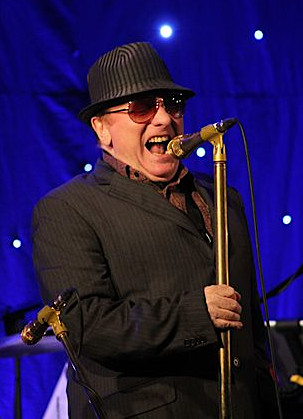
Sir George Ivan "Van" MorrisonOBE is a singer-songwriter and musician from Northern Ireland whose recording career spans seven decades.
Bertrand Russell Berns, also known as Bert Russell and (occasionally) Russell Byrd, was an American songwriter and record producer of the 1960s. His songwriting credits include "Twist and Shout", "Piece of My Heart", "Here Comes the Night", "Hang on Sloopy", "Cry to Me" and "Everybody Needs Somebody to Love", and his productions include "Baby, Please Don't Go", "Brown Eyed Girl" and "Under the Boardwalk".

The Shadows of Knight were an American rock band from Chicago, Illinois, that played a version of British blues influenced by their native city. When they began recording in 1965, the band's self-description was "the Stones, Animals and the Yardbirds took the Chicago blues and gave it an English interpretation. We've taken the English version of the Blues and re-added a Chicago touch," to which rock critic Richie Unterberger commented: "The Shadows of Knight's self-description was fairly accurate."
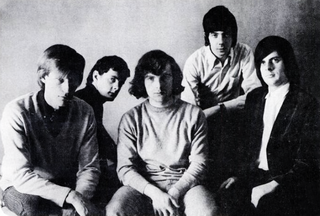
Them were a Northern Irish rock band formed in Belfast, Northern Ireland, in April 1964, most prominently known for their 1964 garage rock standard "Gloria" and launching Van Morrison's musical career. The original five-member band consisted of Morrison, Alan Henderson, Ronnie Milling, Billy Harrison, and Eric Wrixon.

The Beau Brummels was an American rock band. Formed in San Francisco in 1964, the band's original lineup included Sal Valentino, Ron Elliott, Ron Meagher, Declan Mulligan, and John Petersen (drums). They were discovered by local disc jockeys who were looking to sign acts to their new label, Autumn Records, where Sylvester Stewart—later known as Sly Stone—produced the group's early recording sessions. Initially, the band's musical style blended beat music and folk music and typically drew comparisons to the Beatles, while their later work incorporated other music genres such as psychedelic rock and country rock.
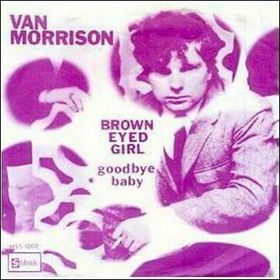
"Brown Eyed Girl" is a song by Northern Irish singer and songwriter Van Morrison. Written by Morrison and recorded in March 1967 for Bang Records owner and producer Bert Berns, it was released as a single in June of the same year on the Bang label, peaking at No. 10 on the Billboard Hot 100. The song spent a total of sixteen weeks on the chart. It featured the Sweet Inspirations singing back-up vocals and is considered to be Van Morrison's signature song.

"Stop! In the Name of Love" is a 1965 song recorded by the Supremes for the Motown label.

"Summertime Blues" is a song co-written and recorded by American rock artist Eddie Cochran. It was written by Cochran and his manager Jerry Capehart. Originally a single B-side, it was released in August 1958 and peaked at number 8 on the Billboard Hot 100 on September 29, 1958, and number 18 on the UK Singles Chart. It has been covered by many artists, including being a number-one hit for country music artist Alan Jackson, and scoring notable hits in versions by Blue Cheer, the Who and Brian Setzer, the last of whom recorded his version for the 1987 film La Bamba, in which he portrayed Cochran.
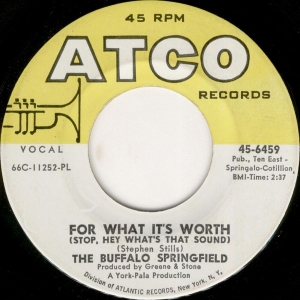
"For What It's Worth " is a song written by Stephen Stills. Performed by Buffalo Springfield, it was recorded on December 5, 1966, released as a single on Atco Records in December 1966 and peaked at No. 7 on the Billboard Hot 100 chart in the spring of 1967.

"I Will Survive" is a song by American singer Gloria Gaynor, released in October 1978 as the second single from her sixth album, Love Tracks (1978). It was written by Freddie Perren and Dino Fekaris. A top-selling song, it is a popular disco anthem, as well as being certified Platinum by the Recording Industry Association of America (RIAA).

"Please Mr. Postman" is a song written by Georgia Dobbins, William Garrett, Freddie Gorman, Brian Holland and Robert Bateman. It is the debut single by the Marvelettes for the Tamla (Motown) label, notable as the first Motown song to reach the number-one position on the Billboard Hot 100 pop singles chart. The single achieved this position in late 1961; it hit number one on the R&B chart as well. "Please Mr. Postman" became a number-one hit again in early 1975 when The Carpenters' cover of the song reached the top position of the Billboard Hot 100. "Please Mr. Postman" has been covered several times, including by the British rock group the Beatles in 1963. The 2017 song "Feel It Still" by Portugal. The Man draws on "Please Mr. Postman" and includes a credit for Brian Holland.
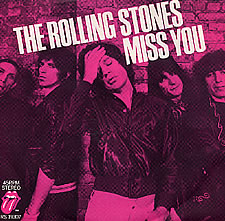
"Miss You" is a song by the English rock band the Rolling Stones, released on Rolling Stones Records in May 1978. It was released as the first single one month in advance of their album Some Girls. "Miss You" was written by Mick Jagger and Keith Richards.
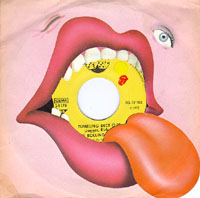
"Tumbling Dice" is a song recorded by the English rock band the Rolling Stones. A product of Mick Jagger and Keith Richards' songwriting partnership, the song has a blues, boogie-woogie rhythm that scholars and musicians have noted for its unusual tempo and groove. The lyrics are about a gambler who cannot remain faithful to any woman. The song is the lead single from the band's 1972 double album Exile on Main St. released worldwide on 14 April 1972 by Rolling Stones Records.

"Here Comes the Night" is a 1964 song, written by Bert Berns. It became a hit for Northern Irish band Them, fronted by Van Morrison, in March 1965, charting at No. 2 in the UK and No. 24 in the US. Them's single is listed at either No. 33 or No. 36 in the Top 100 best-selling UK singles during the calendar year 1965, depending on source.
"It's All Over Now, Baby Blue" is a song written and performed by Bob Dylan and featured on his Bringing It All Back Home album, released on March 22, 1965, by Columbia Records. The song was recorded on January 15, 1965, with Dylan's acoustic guitar and harmonica and William E. Lee's bass guitar the only instrumentation. The lyrics were heavily influenced by Symbolist poetry and bid farewell to the titular "Baby Blue". There has been much speculation about the real life identity of "Baby Blue", with possibilities including Joan Baez, David Blue, Paul Clayton, Dylan's folk music audience, and even Dylan himself.
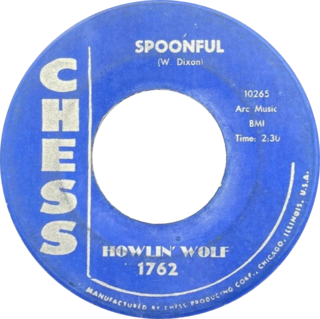
"Spoonful" is a blues song written by Willie Dixon and first recorded in 1960 by Howlin' Wolf. Called "a stark and haunting work", it is one of Dixon's best known and most interpreted songs. Etta James and Harvey Fuqua had a pop and R&B record chart hit with their duet cover of "Spoonful" in 1961, and it was popularized in the late 1960s by the British rock group Cream.

"Baby, Please Don't Go" is a traditional blues song that was popularized by Delta blues musician Big Joe Williams in 1935. Many cover versions followed, leading to its description as "one of the most played, arranged, and rearranged pieces in blues history" by French music historian Gérard Herzhaft.

"Wild Night" is a song written by Northern Irish singer-songwriter Van Morrison and is the opening track on his fifth studio album Tupelo Honey. It was released as a single in 1971 and reached number 28 on the Billboard Hot 100 chart. In 2022, the song peaked at #1 on the radio airplay chart in Canada.

"Little Red Rooster" is a blues standard credited to arranger and songwriter Willie Dixon. The song was first recorded in 1961 by American blues musician Howlin' Wolf in the Chicago blues style. His vocal and slide guitar playing are key elements of the song. It is rooted in the Delta blues tradition and the theme is derived from folklore. Musical antecedents to "Little Red Rooster" appear in earlier songs by blues artists Charlie Patton and Memphis Minnie.

















